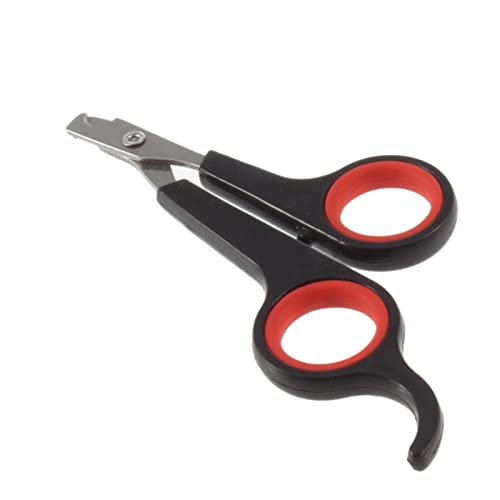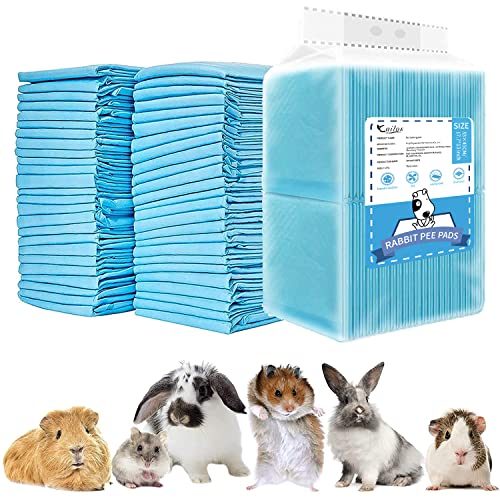funnybunnymummy
Retired Moderator
- Joined
- Oct 24, 2009
- Messages
- 2,022
- Reaction score
- 26
I was doing some research completely unrelated to rabbit care and ran across this information from the Alberta Ministry of Agriculture (http://www1.agric.gov.ab.ca/$department/deptdocs.nsf/all/hrs3243 ):
We are all severely allergic to hay and can't have it in the house. So Gus is fed hay outside in his pen during the day. In theory this should work well, but I find he doesn't always want to eat hay at that time (especially when it's hot and he'd rather sit in the shade or stay in the air conditioned house--can you blame him?), so some days his hay intake is quite low. However, when we have travelled with him this summer and he's had access to hay at night, he eats TONS! SoI was wondering if the beet pulp might be a good substitute for him at night (currently he gets his pellets at bedtime and otherwise only has a few chew toys to occupy him till morning--not ideal, I know!). I would, of course, still provide hay outside during the day.
According to several sources I found, even though it's made from the sugar beet, it's actually very low in sugar.
Anyway, does anyone know more about beet pulp? Can it be fed to rabbits? Is it a good substitute for hay?
Apparently Otter Coop sells a product called Fibre Max:
7.0% Fiber Max
Product # M73996
Ingredients: Beet Pulp Pellet,Soya Hull Pellets
Analysis: Protien 7%
Crude Fat1%
Crude Fibre 35%
Sodium 0.01
calcium 0.5%
Phosphorpus 0.14%
Thanks!
Rue
Beet pulp is the fibrous material left over after the sugar is extracted from sugar beets. It's an excellent source of digestible fibre for the horse and can be fed in addition to, or instead of, hay. Recent research has shown that the fibre in beet pulp is easier to digest than the fibre in hays. In fact, horses may derive as much energy from beet pulp as they do from oats. In other words, a pound of (dry) beet pulp has almost the same amount of calories as a pound of oats. Because beet pulp provides these calories as fibre (as opposed to the starch in grains), it can be safely fed in larger amounts without the risk of colic or laminitis associated with feeding a large amount of grain. Furthermore, the protein content of beet pulp (averaging 8 to 12%) is comparable to most grains and good-quality grass hays. And, beet pulp also provides a reasonable source of calcium, intermediate between the high calcium in alfalfa and the lower calcium content of grass hays, but much higher than grains.
Whether used as a source of forage or as a replacement for oats, beet pulp is a useful addition to the diet of many types of horses. Beet pulp has been successfully fed at levels up to 50% of the horse's total ration (approximately 10 lbs for a 1000 lb horse). More commonly, owners choose to feed 2 to 5 lbs of beet pulp per day. The high digestibility of beet pulp makes it a good choice for horses that are "hard keepers" (it's very good for encouraging weight gain), as well as horses with dental problems, or older horses who have trouble chewing or digesting other types of forage. Beet pulp is also used as a grain replacement in the diets of horses that suffer from tying up (providing calories as fibre rather than starch). And the low potassium content of beet pulp makes it an ideal forage replacement for horses with HYPP. Finally, endurance riders favour beet pulp because its high water holding capacity provides the horse with a larger reservoir of fluid in the digestive tract that can be used to help prevent dehydration.
Table 4: Comparison of the nutrients in beet pulp with the nutrients in other common feeds.*




Feed Fibre(%) Protein(%) Calcium(%)
Beet pulp 20 10 - 12 0.70
Oats 11 12 0.09
Barley6 13 0.05
Alfalfa hay 2815 - 18 1.30
Timothy hay356 - 9 0.35
*Please note these are average nutrient values and are presented on a 100% dry matter basis.
We are all severely allergic to hay and can't have it in the house. So Gus is fed hay outside in his pen during the day. In theory this should work well, but I find he doesn't always want to eat hay at that time (especially when it's hot and he'd rather sit in the shade or stay in the air conditioned house--can you blame him?), so some days his hay intake is quite low. However, when we have travelled with him this summer and he's had access to hay at night, he eats TONS! SoI was wondering if the beet pulp might be a good substitute for him at night (currently he gets his pellets at bedtime and otherwise only has a few chew toys to occupy him till morning--not ideal, I know!). I would, of course, still provide hay outside during the day.
According to several sources I found, even though it's made from the sugar beet, it's actually very low in sugar.
Anyway, does anyone know more about beet pulp? Can it be fed to rabbits? Is it a good substitute for hay?
Apparently Otter Coop sells a product called Fibre Max:
7.0% Fiber Max
Product # M73996
Ingredients: Beet Pulp Pellet,Soya Hull Pellets
Analysis: Protien 7%
Crude Fat1%
Crude Fibre 35%
Sodium 0.01
calcium 0.5%
Phosphorpus 0.14%
Thanks!
Rue





































































